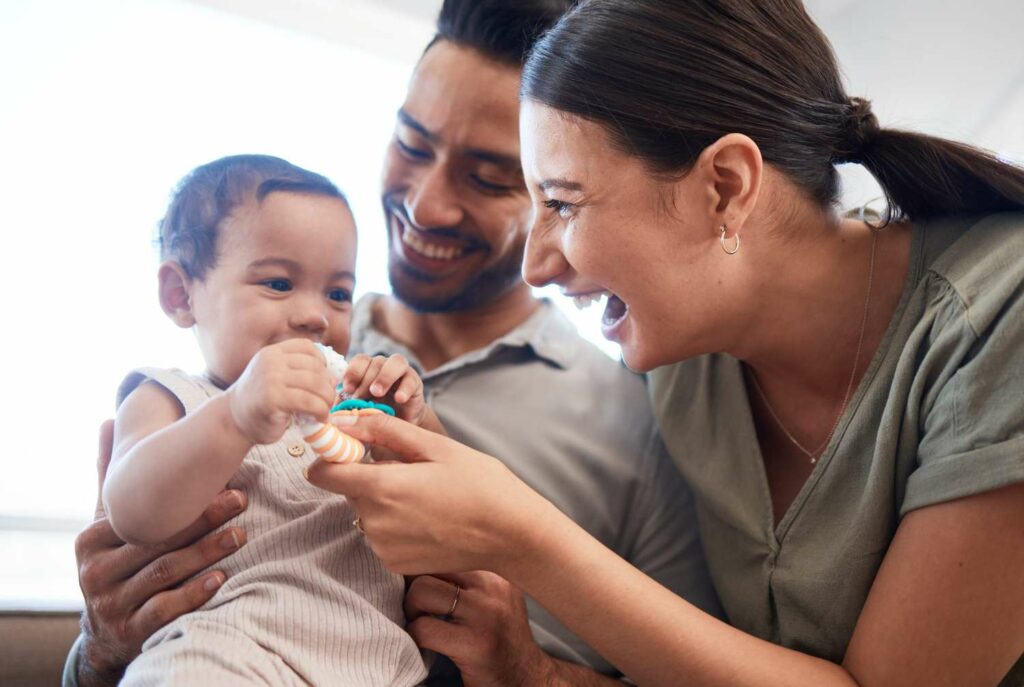Introduction
Parenting is a rewarding journey filled with love, laughter, and growth, but it also comes with its fair share of challenges. One approach that has gained popularity among parents seeking a balanced and respectful way to address these challenges is positive discipline. This method focuses on fostering healthy parent-child relationships, promoting self-regulation, and teaching important life skills through respectful communication and consistent guidance. In this blog post, we’ll delve into the concept of positive discipline, its principles, and how it can be a valuable tool in navigating the ups and downs of parenting.
Understanding Positive Discipline
Positive discipline is an approach that emphasizes mutual respect, effective communication, and collaborative problem-solving between parents and children. Unlike traditional punitive methods, which rely on punishments and rewards, positive discipline focuses on teaching children to understand the consequences of their actions, make responsible choices, and develop essential life skills that will serve them well into adulthood.
The Principles of Positive Discipline
- Mutual Respect:
Positive discipline encourages parents to treat their children with the same level of respect they expect in return. This involves active listening, acknowledging feelings, and valuing children’s opinions and perspectives, even when disagreements arise. - Setting Clear Expectations:
Children thrive in an environment where expectations are clearly communicated. Positive discipline involves setting realistic and age-appropriate expectations, ensuring that children understand what is expected of them. - Effective Communication:
Communication is key to positive discipline. Parents are encouraged to use calm and empathetic language, focusing on open dialogue rather than lectures. Active listening and validation of children’s emotions help build a foundation of trust. - Natural Consequences:
Instead of imposing arbitrary punishments, positive discipline allows children to experience the natural consequences of their actions. This approach helps them develop a sense of responsibility and critical thinking skills. - Problem-Solving Skills:
Positive discipline teaches children how to identify problems, brainstorm solutions, and make choices that align with their values. This equips them with essential life skills for handling challenges in various contexts. - Connection and Empathy:
Building a strong emotional bond between parents and children is central to positive discipline. A secure connection helps children feel understood, valued, and more likely to cooperate.
Applying Positive Discipline in Everyday Situations
- Tantrums and Emotional Outbursts:
When a child experiences a tantrum, positive discipline involves staying calm and empathetic. Instead of punishing or ignoring the behavior, parents can offer comfort, validate emotions, and help the child identify healthier ways to express feelings. - Setting Limits and Boundaries:
While positive discipline encourages mutual respect, it also involves setting clear limits and boundaries. Parents can explain the reasons behind rules, discuss potential consequences, and involve children in problem-solving if boundaries are challenged. - Conflict Resolution:
Positive discipline encourages parents to model conflict resolution skills for their children. When conflicts arise, parents can guide children through active listening, expressing feelings, and finding solutions that work for everyone involved. - Responsibility and Chores:
Instead of assigning chores as punishments, positive discipline involves involving children in household responsibilities from a young age. This helps them develop a sense of contribution, responsibility, and teamwork.
The Long-Term Benefits of Positive Discipline
- Healthy Emotional Development:
By acknowledging children’s feelings and validating their emotions, positive discipline fosters healthy emotional development. Children learn to express themselves effectively and manage their emotions in constructive ways. - Effective Problem Solving:
Positive discipline equips children with problem-solving skills that extend beyond childhood. They learn to analyze situations, consider options, and make decisions that align with their values. - Stronger Parent-Child Relationships:
The emphasis on mutual respect and open communication strengthens the parent-child bond. A positive discipline approach nurtures trust, allowing children to turn to their parents for guidance and support. - Respect for Others:
When children are treated with respect and empathy, they are more likely to treat others the same way. Positive discipline instills values of empathy, kindness, and consideration for others.
Conclusion: Navigating Parenting with Compassion
Positive discipline offers parents a refreshing and respectful approach to navigating the challenges of parenting. By prioritizing communication, empathy, and collaboration, this method empowers children to make informed choices, develop essential life skills, and build strong emotional foundations. As parents embrace the principles of positive discipline, they not only foster healthy parent-child relationships but also lay the groundwork for their children’s success in the journey of growing up and becoming responsible, compassionate adults.




